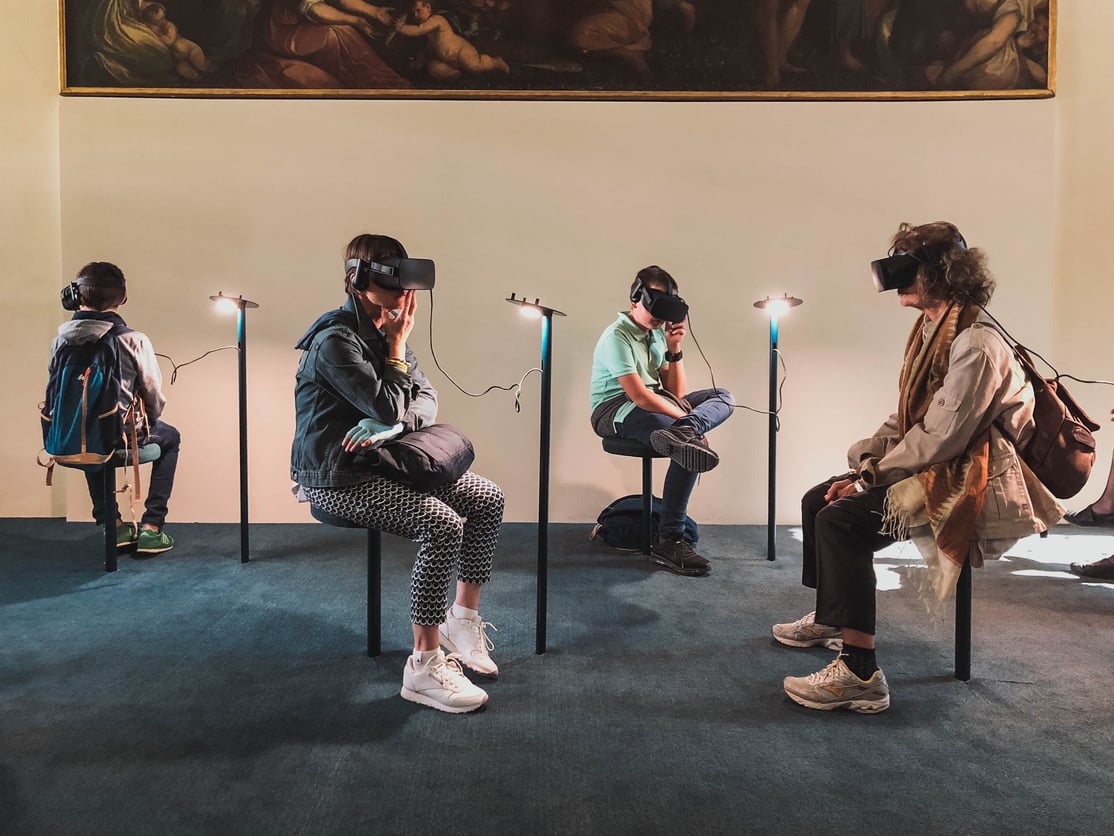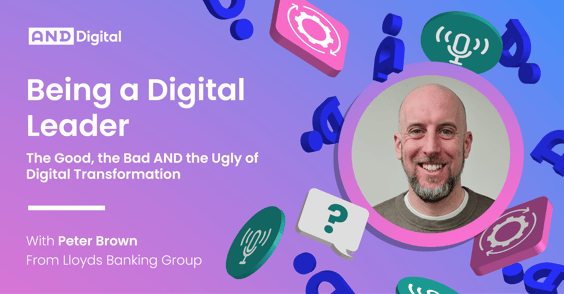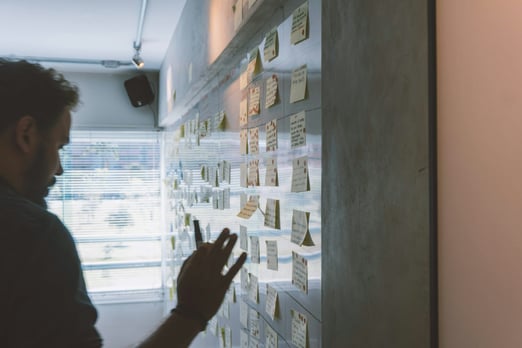Agile coaching
The Future of Learning Environments in Organisations
06 June 2023 • 4 min read

In the not-so-distant past, the workplace buzzed with the energy of eager apprentices learning the ropes from seasoned mentors. Today, post-pandemic, we live in a hybrid world, leaving us with a radically different landscape. So how do you create an environment where learning and development can still thrive?
The once bustling workplace has given way to a new era where remote employees and flexible schedules have become the norm. As we grapple with this new reality, organisations must face a daunting question: how do you foster the same invaluable learning experiences and mentorship opportunities that once thrived in the traditional office setting? The answer lies in adapting our approaches to capability-building, harnessing the power of cutting-edge technologies and embracing the trends transforming learning and development.
What's Changed?
Post-pandemic learning: COVID-19 has permanently altered our perceptions of work and learning. Organisations have now realised that remote learning and development opportunities are not only viable but can also be highly effective. Consequently, the future of learning will likely be a blend of online and in-person experiences.
Hybrid working: As employees demand flexibility and balance, businesses must embrace hybrid working models. This means reimagining learning and development to accommodate remote workers, flexible schedules and diverse needs.
Structural inclusion: A renewed focus on diversity, equity and inclusion has prompted organisations to reassess their learning and development programmes. By prioritising structural inclusion, businesses can create more inclusive and accessible learning opportunities for all employees.
Generative AI tools: With the advent of AI-powered tools like ChatGPT, the possibilities for personalised, dynamic and interactive learning experiences have expanded dramatically. These technologies have the potential to revolutionise the way we learn and grow our skills.
Staying Relevant
Organisations often talk about “digital literacy”. The ubiquity of AI like GPT have heralded a new era - one that requires “AI literacy” - a term coined by researchers Burgsteiner & Kandlhofer back in 2016. AI literacy requires a range of new skills:
Prompt engineering: One of the biggest skills to learn this year although it’s not a wholly new technique. To become a great prompt engineer you just need to deploy the same qualities and skills that any human would apply in describing a task to another human. Communication skills and clarity are the key. Use examples, describe what you want and why and the AI will do it’s best to satisfy your request. Prompt engineering development will help new talent build and maintain competency, although organisations should not overlook the need for deeper knowledge to underpin this.
Through doing this the new talent will find themselves being able to maintain competency with their superiors without having to pick up the knowledge along the way. This will give them an impression of ability, but may not have the deeper learning behind those qualities.
T-Bots: Teacher bots can help fill gaps in understanding, enabling your people to get straight into the knowledge building they need, avoiding the more laborious routes to learning their seniors may have faced in the past.
Chain-of-thought AI: One of the biggest skills that we have to un-learn is the ability to research. Give bots a mission and they will break that mission down into tasks and try to solve them, spawning new tasks and solving them until they meet the original mission. New workers are likely to quickly grow accustomed to designing missions in a way that gets AI to solve them. By doing so, they will grow their leadership abilities too.
What's Next?
As these trends continue to evolve, organisations must stay ahead of the curve to avoid being left behind. Potential disruptors on the horizon include:
Virtual and Augmented Reality: Immersive learning experiences through VR and AR technologies can provide highly engaging and interactive training opportunities.
Advanced analytics and personalisation: Data-driven insights can help organisations tailor learning and development experiences to individual needs, driving better outcomes and employee engagement.
Collaborative learning platforms: The rise of social and collaborative learning tools will encourage peer-to-peer learning, fostering a culture of continuous growth and knowledge sharing.
The Perils of Inaction
For businesses, the cost of doing nothing in the face of these rapid changes is immense. Failure to adapt to these trends may result in the following:
A disengaged workforce: Employees who feel their development needs are not being met may become disengaged, hindering productivity and ultimately harming the bottom line.
Talent attrition: Top talent will seek out organisations that prioritise their growth and development, leaving businesses that fail to adapt at a competitive disadvantage.
Stagnation and obsolescence: Without continuous learning and development, organisations run the risk of falling behind their competitors and becoming obsolete in the ever-evolving business landscape.
Exploring New Ways of Learning
The need to explore new approaches to capability building is something we put into practice recently through our work with Herrmann, the organisation which works to unlock the value of cognitive diversity in workplaces.
We were developing a new MS Teams app to help users access tools to leverage cognitive diversity within their teams, and the process was an opportunity for us to apply Herrmann’s Whole Brain® Thinking to our own teams. You can find out more about how the experience helped inform the team’s communication, decision making and problem-solving processes in this Herrmann case study.
Adapt. Innovate. Thrive
The future of learning and development is being shaped by post-pandemic realities, hybrid working, structural inclusion, and generative AI tools. Organisations must embrace these changes or risk being left behind. The time to act is now – adapt, innovate, and thrive.
To find out more, join our lunchtime Lightning Decision Jam on 15 June
Navigating the Future of Capability Building and Skill Growth
Join our Lightning Decision Jam to learn what is on the horizon that could be next to disrupt our ability to learn and grow our skills. What are the challenges and potential solutions for reskilling and upskilling in the workplace?
![Insight Event_Artwork Template 2 2 2 (1) [Recovered]-10-2](https://www.and.digital/hubfs/Insight%20Event_Artwork%20Template%202%202%202%20(1)%20%5BRecovered%5D-10-2.png)



